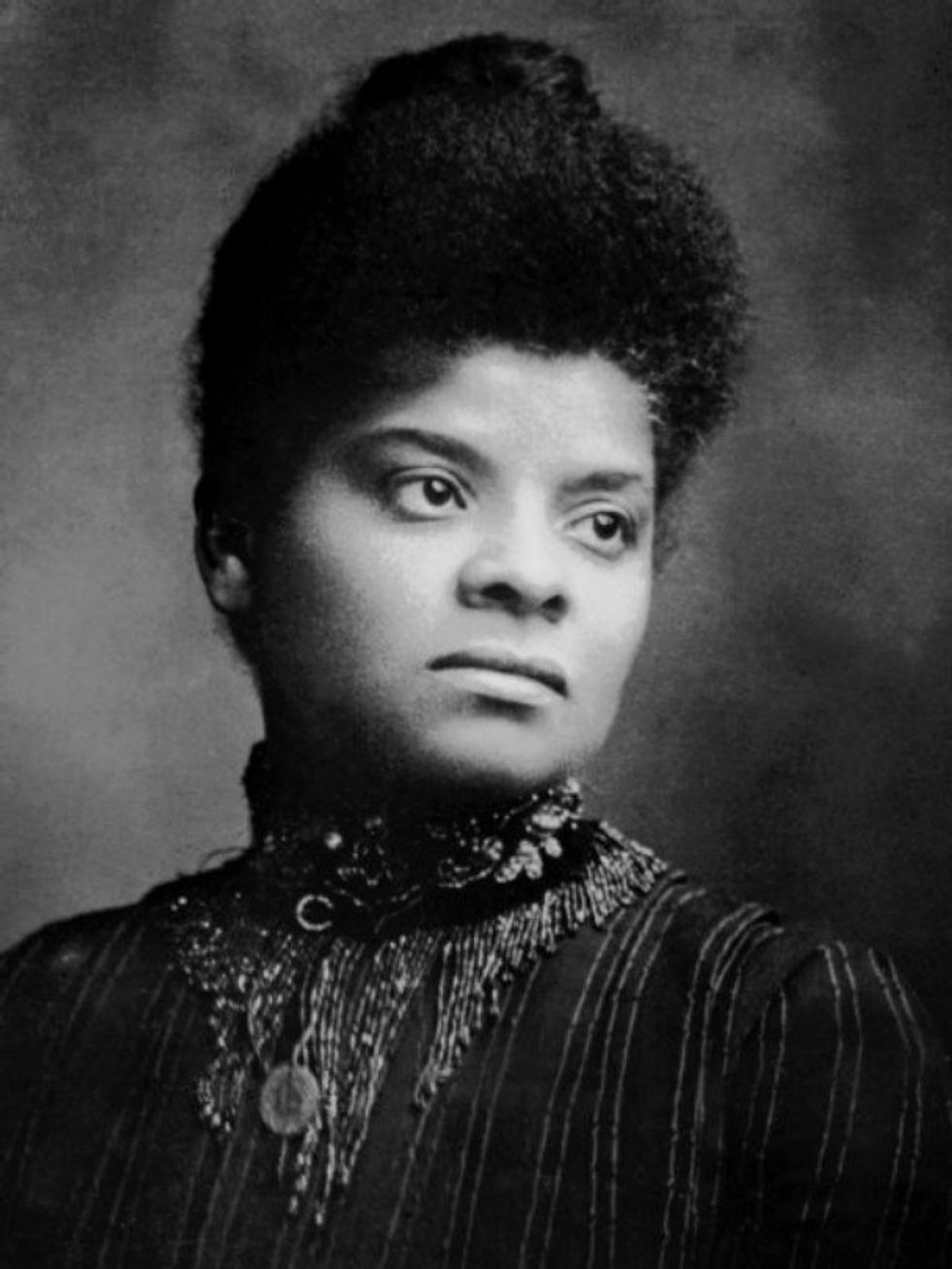With the presidential elections rapidly approaching this November, I’m not surprised to see commercials for candidates while watching HGTV, posts about people’s dissatisfaction with the current democratic and republican candidates, Hillary Clinton and Donald Trump, and rants on how outraged some were with Bernie Sander’s endorsing of Clinton. Much of my reading tells me of how we voters have to choose between the lesser of two evils. My other reading tells of presidential options other than the traditional two parties such as the Green and Libertarian party candidates. In light of all this, I thought we should discuss a woman who had a great influence in the world around her in regards to suffrage and the issues surrounding her at the time that still apply today.
Ida B. Wells
Ida B. Wells was known as a “fearless” anti-lynching crusader, a suffragist, women’s rights activist, journalist and speaker. Wells was born in Holly Springs, Mississippi in 1862. At the age of 14, her parents and youngest sibling died from an endemic of yellow fever. Wells, however, was able to take care of her family and keep them together by taking a job teaching due to her “[emblematicalness] of the righteousness, responsibility and fortitude that characterized her life.” She later continued her education at nearby Rust College before moving to live in Memphis with her aunt.
It was in Memphis that Wells’ journalistic career took hold. In 1884, Ida was instructed by the conductor of the train she was riding to move to another car. When she refused, the conductor attempted to remove her, but she bit his hand. Wells stated in her autobiography that:
“I refused, saying that the forward car [closest to the locomotive] was a smoker, and as I was in the ladies' car, I proposed to stay. . . [The conductor] tried to drag me out of the seat, but the moment he caught hold of my arm I fastened my teeth in the back of his hand. I had braced my feet against the seat in front and was holding to the back, and as he had already been badly bitten he didn't try it again by himself. He went forward and got the baggageman and another man to help him and of course they succeeded in dragging me out.”
After the incident on the train, Wells filed a suit against the train company that ran the train, Chesapeake & Ohio Railroad Company. She won her case with the local courts. But, the company appealed the case to state courts of Tennessee and the ruling was overturned. This was the “first of many struggles” Ida engaged in her career. And it was this event that sparked her career as a journalist.
In 1892, three of Wells's friends were lynched after their (the friends') grocery store was taking business from the other competing white-owned stores. Wells covered the story, sharing her outrage on the atrocity. Later, the newspaper office she wrote for was destroyed, prompting Wells to leave Memphis. But this didn't stop her. She moved to Chicago and continued her "blistering journalistic attacks on Southern injustices." Along with being an anti-lynching crusader, Wells joined the suffrage movement and marched in Washington D.C. in 1913 for universal suffrage and was a founding member of the National Association for the Advancement of Colored People (NAACP).
Wells certainly made an impact on the world around her back in the late 1800s and early 1900s with her journalism and activism.








 StableDiffusion
StableDiffusion StableDiffusion
StableDiffusion 10. Extra BlanketsJuwenin Home 100% Cotton Knitted Throw Blanket
10. Extra BlanketsJuwenin Home 100% Cotton Knitted Throw Blanket StableDiffusion
StableDiffusion StableDiffusion
StableDiffusion File:Kishlaru familie.jpg - Wikimedia Commons
File:Kishlaru familie.jpg - Wikimedia Commons Photo by Hanna Balan on Unsplash
Photo by Hanna Balan on Unsplash StableDiffusion
StableDiffusion black blue and yellow round illustrationPhoto by
black blue and yellow round illustrationPhoto by 

 woman holding glass jar
Photo by
woman holding glass jar
Photo by 









